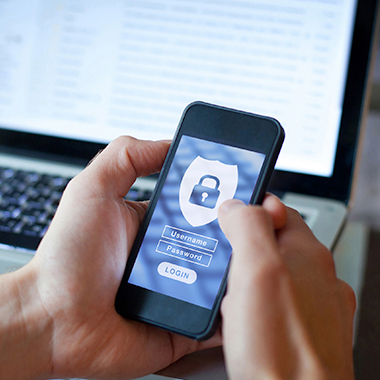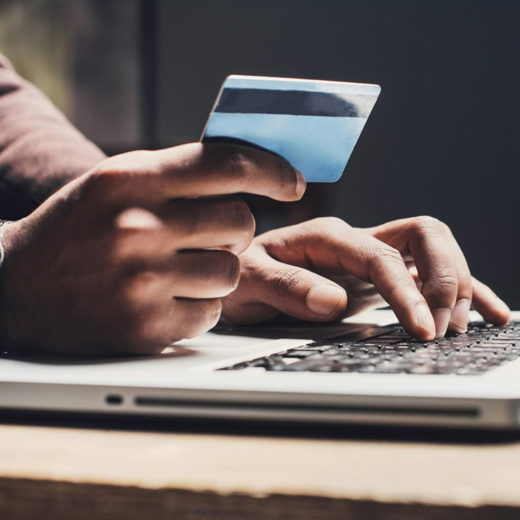
- Five minutes read
Has COVID-19 moved the needle on security vs convenience?
In the final article in our Lost in Transaction: The impact of COVID-19 on consumer payment trends series, we ask whether consumer attitudes to security and frictionless checkouts has been affected.
As we have discussed in previous articles, COVID-19 has made an identifiable impact on the way consumers are going about making payments. Some of these changes have been enforced by the physical challenges of coping with day-to-day life during the pandemic; a greater reliance on eCommerce while shops are closed and the move to contactless payments for in-store payments being the most obvious.
But might COVID-19 also be having a psychological impact on how and when consumers make payments? Has there been a change in attitude when it comes to choosing a payment method and the preferences when it comes to the checkout experience? And if so will this shift be permanent?
In order to answer these questions, we surveyed 8,000 consumers from the US, UK, Canada, Germany, Austria, Italy, and Bulgaria on how COVID-19 has altered their priorities when selecting a payment method, as well as their physical habits.
Other data from this research can be found here.
For the significant majority, COVID-19 has had an effect
The first major takeaway from the research in this regard is that COVID-19 has made a tangible impact on consumers’ priorities when making a payment. When asked whether any determining factors they might consider when selecting a payment method had become more important to them since the pandemic’s outbreak, only 16% of consumers said that their attitudes had not been affected in any way. This percentage was higher in the UK (22%), Germany (26%), and Austria (24%), but was significantly lower elsewhere. In the US, only 12% of consumers said they were unaffected; 88% said that their attitudes to payments had been affected in some way.
Q: Which of the following have become more important to you since the start of the COVID-19 outbreak?
Security is valued more than convenience
When we take a closer look at which priorities are more significantly affected, a clear pattern emerges across every country surveyed. Security is the factor that has grown in importance for the majority of people, followed by the potential associated costs of making a transaction. Over one third (34%) of consumers said that protection against loss from fraud had become more important to them following the outbreak and close to the same number (32%) said that ensuring their financial data was kept secure from fraudsters was a growing concern. This second concern has become more important for a greater number of consumers in Canada (40%) and the US (36%).
The convenience of online payments has become a more pressing priority for some consumers, including the speed of completion (for 21% of consumers) and the ease of the checkout user experience (for 17% of consumers). However, in every country the percentage of consumers that said this was a growing concern was lower than the percentage that were more focused on security.
The imbalance between security and convenience
To further explore whether consumers were more focused on better security or an improved user experience, we asked survey respondents whether they thought the current balance between the two (sometimes competing) factors matched their expectations when paying via an online checkout. The overwhelming majority said that the balance struck at the moment was not correct; only 18% of consumers agreed that the balance between security, convenience, and fraud protection was satisfactory. 82% that said they were not satisfied, and only 5% said that this was because they wanted a more frictionless checkout experience even if this increased the probability of fraud.
Over three quarters (76%) of consumers said that they would be in favour of tightening current security protocols, even if it meant compromising on the convenience of the checkout experience. 25% of consumers were in favour of doing this minimally, but over half of all the consumers surveyed said that now they would accept whatever security measures would be needed to eradicate fraud, even if this had a severely detrimental impact on the checkout experience. This percentage was consistent across all countries, with only the US (48%) falling marginally short of half of all consumers.
Q: When weighing up convenience vs. security of financial data when making a purchase online, what element of risk would you be willing to accept?
A role for alternative payments
So it is clear that for consumers overall, security is the greater priority over convenience, and that this trend has been enhanced by COVID-19. And this is reflected in many consumer attitudes to the security of payments generally, beginning with the perceived risk associated with eCommerce. 56% of consumers say that they accept there is a risk of being a victim of fraud if they shop online (only 18% do not accept this), and 48% say that they are more concerned about being a victim of fraud than they were a year go (only 21% say that they are not more concerned). Only a third of consumers (34%) are more confident in the security of online payments than card-present payments.
But it is not true that this focus on security automatically means convenience has to be compromised. 48% of consumers said they did not feel comfortable entering their financial details online to pay on an unknown website, but 68% said that they were more likely to shop with businesses where their financial details had already been securely stored.
Diversifying the payment methods available in the checkout is another way businesses can cater to these consumers that do not feel safe entering their financial details and that prioritise safety over convenience. Payment methods where the consumer’s financial details are not shared with the merchant are particularly favoured; 75% of consumers said they were more comfortable using a digital wallet to make a payment online and 56% said they felt more comfortable using a prepaid card or voucher where their financial details were not shared.
Is biometrics the answer to security vs. convenience?
One further security improvement worth considering is the introduction of biometric payment authentication, particularly when it comes to mCommerce. But while there is some support for this more convenient (and arguably more secure) method of payment verification, consumers are still somewhat concerned that this level of security is not strong enough to protect their financial data. Although 53% of consumers do think that biometric authentication makes payments more secure, 41% say they trust manual passwords more than biometrics and 59% say they feel anxious when they aren’t asked to provide a password when making a payment. So as online businesses continue to develop their mCommerce platform, educating consumers on the security, as well as the convenience, benefits of biometric authentication will be imperative.
Next steps
As we begin to emerge on the other side of the pandemic, businesses will be desperate to reclaim much of the commercial ground they may have lost throughout the first half of the year. But while making the shopping experience as frictionless as possible might initially appear to be a sure-fire way to boost sales, a slick shopping experience that leaves the customer concerned about the security of their financial data will have the opposite effect.
eCommerce and mCommerce businesses have long sought-after the most convenient user experience, but with consumers now being more focused than ever on the security of their financial data this will be easier said than done. But there are solutions, including promoting alternative payment methods where financial details are not shared, and biometric authentication. Understanding how these can shift the perception of security vs. convenience in the eyes of consumers is vital.




